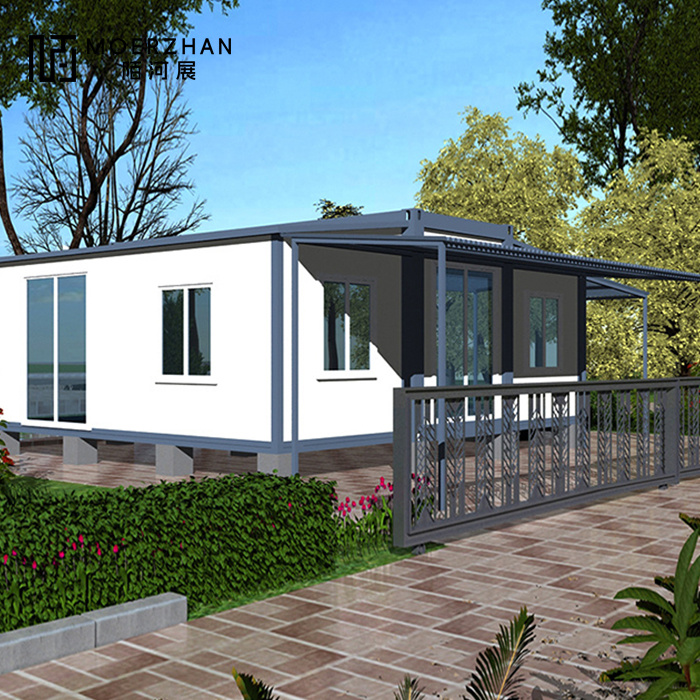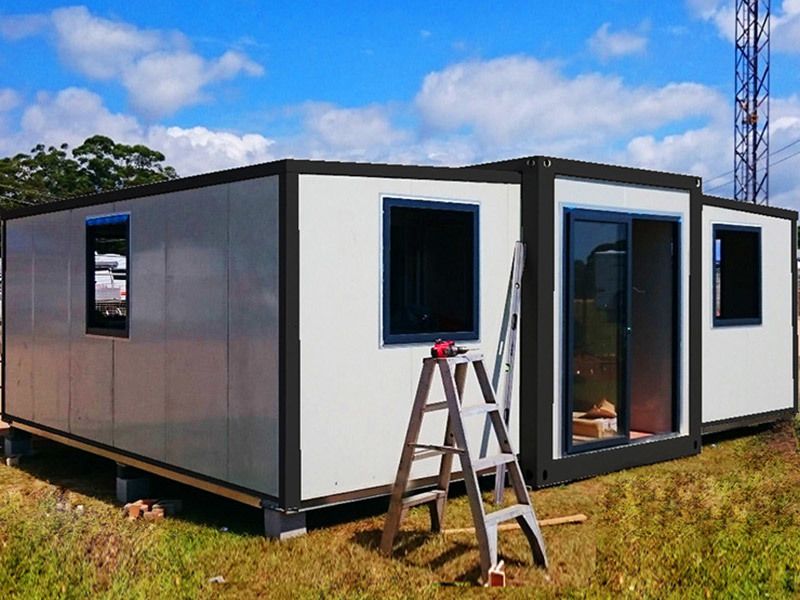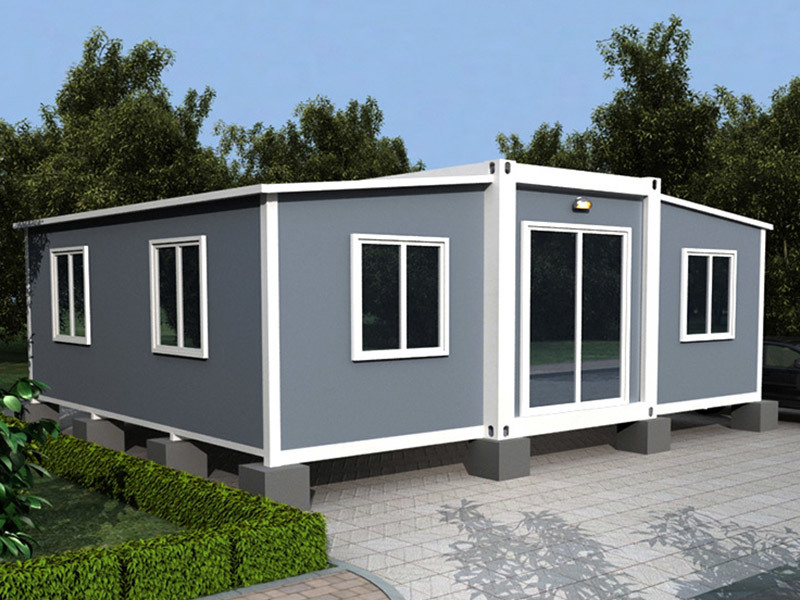Committed To Providing Customers With One-Stop Integrated Housing Solutions
The Aesthetic Appeal of Foldable Houses: Merging Style and Functionality
Aug 26,2025

The Aesthetic Appeal of Foldable Houses: Merging Style and Functionality
Introduction to Foldable Houses
In recent years, foldable houses have emerged as a popular choice for those seeking a harmonious blend of aesthetic charm and practical functionality. These innovative structures not only challenge traditional architectural norms but also cater to a growing demand for sustainable, space-efficient living solutions. As we navigate the complexities of modern life, foldable houses provide a refreshing alternative that prioritizes both style and utility.
Why Choose Foldable Houses?
Foldable houses present a myriad of advantages that make them an attractive option for diverse lifestyles. They are designed to adapt to various environments, offering flexibility and convenience that conventional homes often lack. Here are some compelling reasons to consider when exploring the options for foldable houses:
1. Space Efficiency and Versatility
One of the standout features of foldable houses is their remarkable space efficiency. These structures can be easily expanded or contracted to accommodate different needs, whether it's a cozy weekend retreat or a full-time residence. With the ability to transform, they cater to urban dwellers who may face space constraints while still desiring a stylish living environment.
2. Aesthetic Customization
Foldable houses come in a variety of designs, allowing homeowners to express their personal style. From sleek modern lines to rustic finishes, these structures can be tailored to match individual tastes. Advanced architectural techniques contribute to their aesthetic appeal, ensuring that beauty is never compromised for functionality.
3. Eco-Friendly Living
Sustainability is a core principle of many foldable houses. Built with eco-friendly materials and designed to minimize energy consumption, these homes resonate with environmentally conscious individuals. They often incorporate solar panels, green roofs, and efficient insulation, promoting a lifestyle that is both stylish and sustainable.
4. Cost-Effectiveness
Foldable houses can be a more economical choice compared to traditional homes. Their efficient designs often require fewer materials and less labor, resulting in lower construction costs. Additionally, the potential for reduced utility bills through energy-efficient features makes them a financially savvy investment in the long run.
The Design Elements of Foldable Houses
The design of foldable houses is a testament to modern architectural ingenuity. Understanding the key elements that contribute to their aesthetic appeal can help prospective homeowners appreciate their charm.
1. Modular Design
Foldable houses often utilize modular design principles, allowing for easy assembly and disassembly. This feature not only enhances their visual appeal but also provides practical benefits, such as simplified transportation and relocation. Each module can be customized, presenting opportunities for creativity in layout and functionality.
2. Innovative Materials
The selection of materials plays a crucial role in both the aesthetic and practical aspects of foldable houses. Common materials include lightweight metals, composite wood, and high-performance plastics, which not only contribute to the overall look but also ensure durability and insulation. These choices reflect a commitment to sustainability while maintaining a modern aesthetic.
3. Smart Interior Layouts
The interiors of foldable houses are designed with a focus on maximizing space and functionality. Open floor plans, multi-purpose furniture, and clever storage solutions create a seamless living experience. This thoughtful approach to design ensures that every inch of space is utilized effectively, enhancing both comfort and style.
Applications of Foldable Houses
Foldable houses are versatile structures suited for various applications. Their adaptability makes them suitable for diverse settings, from urban environments to rural landscapes.
1. Temporary Housing Solutions
In situations where quick deployment is essential, such as disaster relief efforts or temporary housing for events, foldable houses serve as an efficient solution. Their ability to be set up rapidly makes them ideal for providing shelter in emergency situations.
2. Vacation and Recreational Uses
Many individuals are choosing foldable houses as vacation homes. Their compact design allows for easy transport to scenic locations, providing a cozy retreat for weekends or holidays. The blend of comfort and style ensures an enjoyable getaway experience.
3. Urban Dwellings
As urban populations continue to grow, foldable houses offer a practical alternative to traditional housing. Their ability to fit into smaller lots without sacrificing style makes them an appealing option for city living. Additionally, their eco-friendly designs align with the sustainability goals of many urban areas.
Challenges and Considerations in Foldable House Design
Despite their many advantages, foldable houses are not without challenges. Understanding these considerations is vital for anyone contemplating this unique living solution.
1. Zoning and Regulations
Before investing in a foldable house, it's essential to research local zoning laws and regulations. Some areas may have restrictions regarding unconventional structures, which could impact the feasibility of placing a foldable house on a particular site.
2. Structural Integrity
Ensuring the structural integrity of a foldable house is paramount. While modern engineering techniques have made significant advancements, it's crucial to work with reputable builders who prioritize safety and durability. Proper insulation and weatherproofing are also essential to maintain a comfortable living environment.
3. Resale Value
As foldable houses are still a relatively new concept, potential homeowners may wonder about their resale value. Market demand for these structures can vary, and it's important to consider the long-term implications of such an investment.
Foldable Houses and Lifestyle Trends
The rise of foldable houses is reflective of broader lifestyle trends that prioritize flexibility, sustainability, and minimalism. Understanding these trends can help contextualize the appeal of these unique structures.
1. Minimalist Living
Many individuals are embracing minimalist lifestyles, seeking to simplify their possessions and reduce clutter. Foldable houses align perfectly with this philosophy, offering a compact and efficient living space that encourages a focus on experiences rather than material belongings.
2. Eco-Conscious Choices
As society becomes increasingly aware of environmental issues, more people are seeking eco-conscious living options. Foldable houses, with their emphasis on sustainable materials and energy-efficient designs, appeal to those who want to reduce their carbon footprint while still enjoying a stylish home.
3. Remote Work and Mobility
The rise of remote work has led to a growing interest in flexible living arrangements. Foldable houses provide the perfect solution for individuals who desire the freedom to work from anywhere while maintaining a comfortable and aesthetically pleasing environment.
FAQs About Foldable Houses
1. Are foldable houses durable enough for year-round living?
Yes, foldable houses are designed to be durable and weather-resistant. When constructed properly, they can withstand various environmental conditions and provide a comfortable living space year-round.
2. How long does it take to set up a foldable house?
The setup time for a foldable house can vary depending on the design and complexity. However, many models can be assembled within a few days, making them a convenient option for quick living solutions.
3. Can I customize the design of a foldable house?
Absolutely! Many manufacturers offer customizable options, allowing you to choose layouts, finishes, and features that suit your personal style and needs.
4. What are the typical costs associated with foldable houses?
The costs of foldable houses can vary widely based on size, materials, and customization. Generally, they can be more affordable than traditional homes, but it's essential to budget for additional expenses such as land and utilities.
5. Do foldable houses require special permits for installation?
Yes, depending on local regulations, you may need to obtain permits for installing a foldable house. It's important to check with local authorities before proceeding with your purchase.
Conclusion: Embracing the Future of Living with Foldable Houses
As we explore the evolving landscape of architecture and design, foldable houses stand out as a beacon of innovation. Their unique ability to merge aesthetic appeal with practical functionality makes them a compelling choice for modern living. By prioritizing sustainability, adaptability, and style, foldable houses are not just a trend—they represent a significant shift towards a more thoughtful way of living. Whether for urban environments, vacation getaways, or temporary housing solutions, these structures embody a forward-thinking approach to home design that resonates with the needs and desires of today’s homeowners.
Hot Tags:
Contact Us
E-mail:
Phone/WhatsApp:
Address:
No. 132 Renmin West Road, Fucheng County, Hengshui City, Hebei Province



